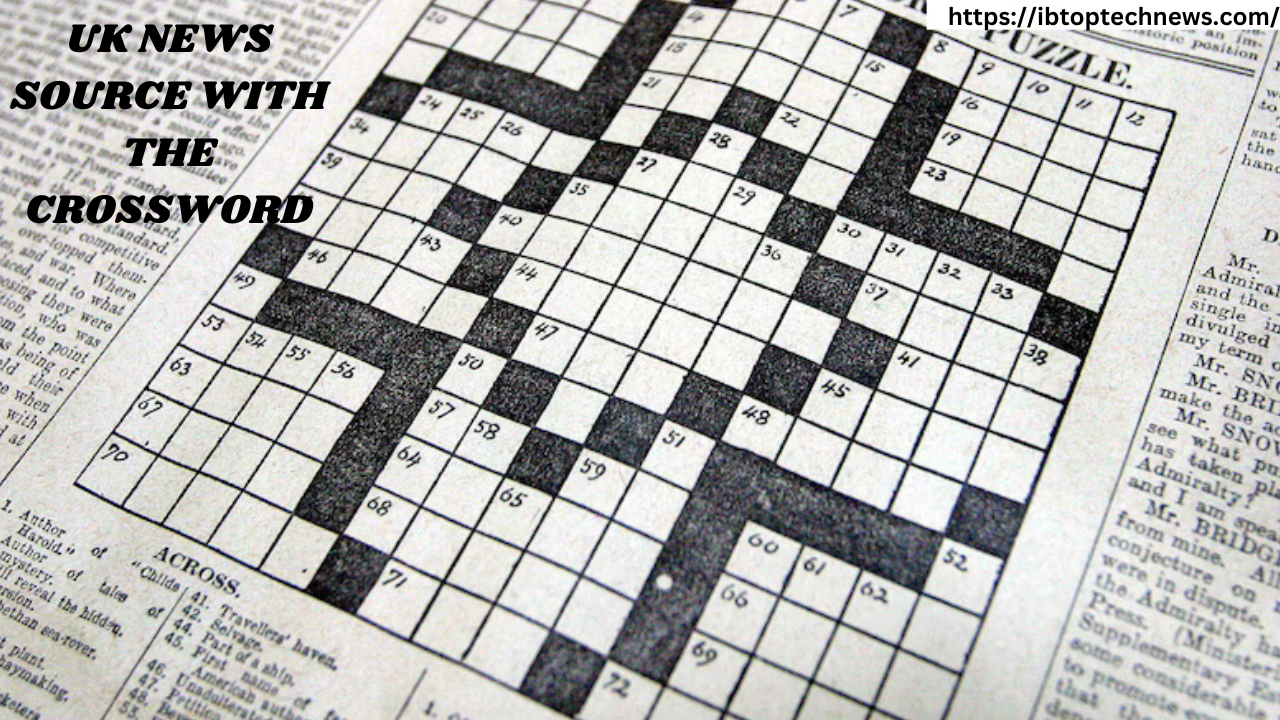UK News Sources and the New York Times Crossword: We get our news from a wider variety of sources than ever before in the era of digital media. Digital-first platforms like BuzzFeed and Vice coexist with more established media outlets like the BBC and The Guardian in the United Kingdom. But one fascinating feature that is frequently overlooked is how foreign media outlets, especially the New York Times (NYT), have established themselves in the UK media market. The NYT crossword’s popularity and the dynamics of UK news sources are examined in this essay, along with how these factors combine to enhance many readers’ reading experiences.
The Landscape of UK News Sources
Traditional Newspapers
With publications like The Times, The Telegraph, and The Guardian at the forefront, print journalism has a long history in the United Kingdom. Serving a broad spectrum of readers, these magazines combine serious journalism with more lighthearted aspects. The BBC has been a mainstay of UK news, offering in-depth coverage of both domestic and global events thanks to public funding.
Digital Innovation
Many traditional news sources have switched to digital formats as a result of the internet’s growth. This modification has enabled more engaging content and a larger audience. Online publications like The Independent and HuffPost UK have surfaced, providing news combined with lifestyle and opinion pieces. With sites like Twitter acting as real-time news feeds, social media has also been crucial in the spread of news.
The Role of International Sources
The New York Times and other international news outlets have become more well-liked by UK readers. Those who want in-depth reporting and a global viewpoint instead of merely headlines are drawn to the NYT. UK consumers greatly value the NYT’s journalism approach, which often includes cultural critiques and investigative reporting that extends beyond the subject matter.
The New York Times Crossword: A Cultural Phenomenon
The crossword puzzle from the New York Times has come to represent intellectual challenge and cultural knowledge. Many people consider doing crossword puzzles to be a ritual rather than merely a hobby. Millions of readers interact with hints to test their language, history, science, and pop culture skills every day, ranging from simple to complex.
Appeal of the NYT Crossword
1. Cognitive Challenge: The crossword puzzle promotes lateral thinking and problem-solving by utilizing a variety of cognitive abilities. It is a test of both creative thinking and knowledge.
2. Cultural Relevance: The hints frequently allude to pop culture, historical allusions, and current affairs, creating a kind of living chronicle that encapsulates the zeitgeist.
3. Participation of the Community: The NYT crossword has created a community of solvers who exchange solutions, methods, and advice. Social media groups and online forums have proliferated, enabling puzzle fans to interact and talk about their favorite riddles.
4. Accessibility: Despite the NYT crossword’s reputation for difficulty, a worldwide audience can access it because to its online availability. Anyone may interact with and appreciate the puzzle thanks to the democratization of information.
The Intersection of UK News and the NYT Crossword
Shared Audience
The NYT crossword solvers and UK news consumers have a lot in common. Many readers in the UK who are looking for news from around the world also like the crossword’s intellectual stimulus. The crossword’s cultural allusions frequently strike a chord with UK readers because of their common language and history.
Thematic Connections
Fascinatingly, the topics covered in the NYT crossword frequently correspond with issues in society at large that are relevant to UK news. Puzzles could, for instance, make reference to important sporting events, cultural phenomena, or political happenings. This thematic resonance adds to the crossword-solving experience by making it seem more current and relevant.
Cross-Pollination of Knowledge
Because of the crossword’s interaction, readers are encouraged to interact with subjects they might not otherwise consider. A hint about a lesser-known historical figure, for example, can inspire a reader to learn more about that person and locate pertinent pieces in UK news sources. The audience becomes more knowledgeable and culturally educated as a result of this knowledge exchange.
Challenges and Criticisms
In the UK, the NYT and its crossword puzzle have found a willing readership, but there are some issues and complaints to be aware of.
Accessibility Issues
Despite its popularity, some contend that others who do not share the same linguistic quirks or cultural references may find the NYT crossword difficult to solve. The degree of difficulty may turn off casual solvers, and some clues might be more culturally American, making them less relatable to UK readers.
Competition with Local Sources
Local UK news outlets can find it difficult to draw readers’ attention as foreign news sources become more popular. The New York Times’s careful reporting and well-written writing may eclipse local issues that are worthy of notice. This dynamic casts question on the viability of local journalism in the future and the need of encouraging domestic news sources.
Conclusion
UK News Sources and the New York Times Crossword: The way the New York Times crossword puzzle and UK news sources interact reveals an intriguing cross-cultural interaction. For a range of perspectives on global events, UK readers often turn to international periodicals like the New York Times, which offer not only news but also a rich tapestry of cultural references through its crossword puzzles.This interaction bridges the gap between local and global tales, resulting in a readership that is more educated and involved.
In and of itself, the NYT crossword has become a global cultural phenomenon that invites solvers from all walks of life to partake in the pleasures of language and learning. Quality journalism combined with intellectual difficulties will continue to be crucial in determining how we navigate an increasingly complex media world.
The quest for information and understanding ultimately serves as a common thread that unites all people, regardless of whether they are reading through the most recent news from The Guardian or struggling with a particularly challenging crossword puzzle.














Leave a Reply